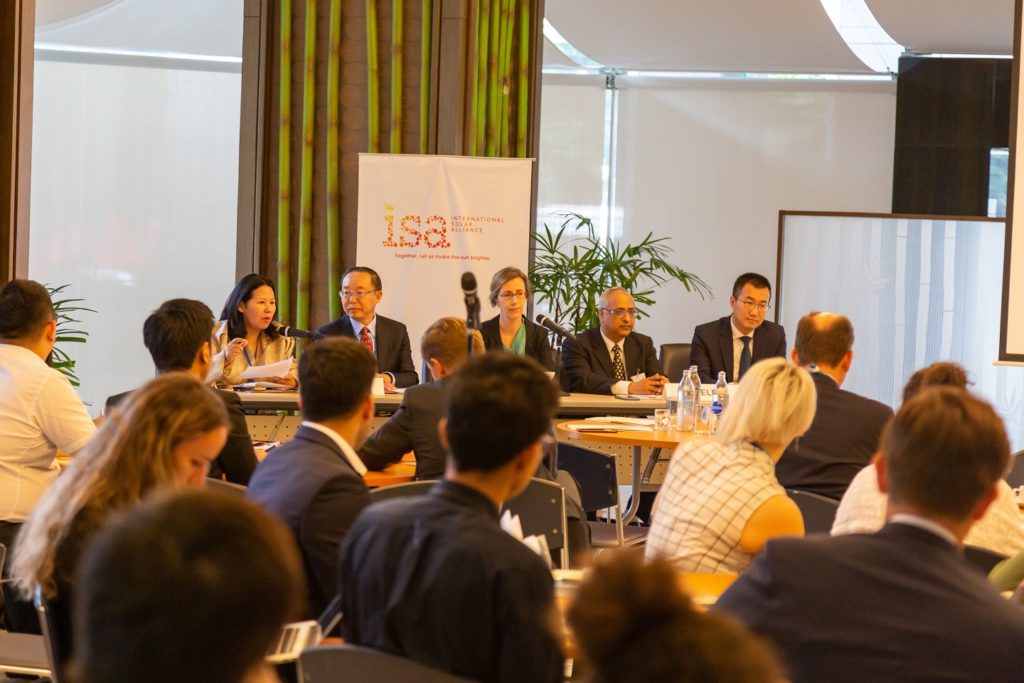28 May 2019, 12:30-14:30 hrs, Public Foyer, United Nations Conference Centre Bangkok, organized by International Solar Alliance (ISA)
Prof. Dhakal joined the panel discussions together with Ms. Dechen Tsering, Regional Director and Representative of the UNEP Asia and the Pacific Office, Mr. Hongpeng Liu, Director, Energy Division, ESCAP, and Mr. QUAN Nan, Director of Southeast and South Asia, Global Energy Interconnection Development and Cooperation Organization (GEIDCO).
WELCOME: Ms. Armida Salsiah Alisjahbana, Under-Secretary-General of the United Nations and Executive Secretary of ESCAP delivered opening remarks;
OPENING REMARKS: H.E. Mr. Upendra Tripathy Director General, International Solar Alliance
SPECIAL ADDRESSES: H.E. Ms. Suchitra Durai, Ambassador of India to Thailand, H.E. Mr. Jacques Lapouge, Ambassador of France to Thailand, H.E. Ms. Mareseini Vuniwaqa, Minister of Women, Children and Poverty Alleviation, Republic of Fiji .
PANEL DISCUSSION MODERATOR: Ms. Milou Beerepoot, Regional Technical Specialist, Energy and Climate Change Mitigation, UNDP, Global Environmental Facility
See detailed program here: https://www.unescap.org/sites/default/files/Side%20event%20on%20Solar%20Investment%2028%20May.pdf
The event was focused on the issues of developing and financing solar energy projects and aligning financial flows in line with the Paris Agreement, the One Planet Summit and the Delhi Agenda i.e. to mobilise more than $1000 billion investments to finance 1000GW of global solar capacity by 2030.
Prof. Dhakal’s key messages:
Global energy investment stands 1.85 trillion $ in 2018 while the solar investment is merely 160 billion $. About 100 GW solar has been added in 2018 alone making global installed capacity of solar of about 486 GW. In this context, how to mobilize $1000 billion to finance 1000 GW solar by 2030? We must address hurdles at the supply side as well as at the demand side!!!
- Encourage divestment from fossil fuel sector, enforce sustainability criteria in public and private investment, lobby for more investment from public and private sector
- Develop bankable project pipeline – there is shortage of bankable projects
- Use available public finance to leverage private finance and de-risking the private investment
- Reduce transaction costs of small scale solar projects
- Reduce cost of capital for solar projects and increase the access to affordable capital
- Promote regional grid integration to address the intermittency problem and to benefit from load profile complementarities
- Promote off-grid decentralized system and mini/micro-grids
- Develop in-country capacity and build institutions, especially, support the enabling policies and regulations, build local financing institutions and develop dedicated financing tools
- Innovation is must !!! in technology, financial models, institutional arrangement, policies and regulations
